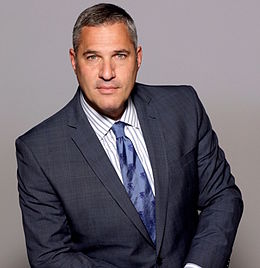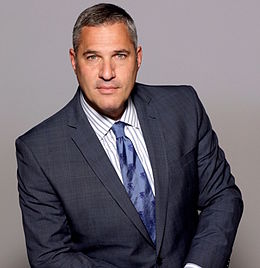 According to the Academic Ranking of World Universities for 2015, eight of the top ten universities in the world were in the US. The propensity for the inclusion of international students into these pillars of higher learning is, to many Americans
According to the Academic Ranking of World Universities for 2015, eight of the top ten universities in the world were in the US. The propensity for the inclusion of international students into these pillars of higher learning is, to many Americans
who have benefi tted from acceptance into their programs, a part of what makes these universities so special. A diversity of cultural background is key to unlocking new perspectives in the classroom, and ultimately, building a generation of truly global citizens. If you’ve been accepted to an American university, but are finding yourself overwhelmed by the details surrounding the visa application process, take a step back, and recognize that this is more than surmountable, and must not interfere with the opportunity for a life-changing education.
The visa required for non-immigrants wishing to study here, whether it’s for university, a specific program, seminary or other academic institutions, is known as the F-1 Visa. There are thousands of these issued every year after the applicant has
gone through a series of screenings and interviews. The first step to being granted one of these visas is completion of the Form I-20. This form, after paying a fee, is received along with an acceptance letter from the institution that one applies to, and it is key to make sure that the name of the applicant is represented exactly as it is in on his or her passport. This is the name that will be passed along for a full security clearance. These clearances can take a substantial amount of time, so make sure that there’s plenty of it allotted here.
The next step is to set up an interview. One can do this very easily by finding his or her country’s US Embassy website and following their process. There’s no reason to be nervous at these interviews. Just be completely honest, make sure that you’re dressed professionally, come with bank statements and be as detailed as possible regarding your plans for your education. If an applicant doesn’t have employment or a solid record of their fi nances, that can be okay as long as the applicant’s parents have documentation regarding how they receive their income and have pledged support to help finance the academic pursuit.
Before the interview, there’s one more form that must be filled out. The DS-160 asks for basic information, and again, the successful applicant makes sure that every bit of that information, when applicable, lines up with his or her passport. Along with the I-20, this document must be brought to the interview and presented to the Visa Officer.
Of course, there are other details here that will require attention. One that is of tremendous importance during the interview is making sure that there is evidence of a strong tie to an applicant’s home country. This could mean items ranging from bank accounts to a letter of employment that is activated once an applicant’s studies are completed.
The tie to a home country actually brings us to another point, which is that the F-1 visa is designed for students who want to get an American education, and then return home to bring their new skills and knowledge into their native workforce.
The ultimate goal of the F-1 is not American citizenship or permanent residency, but rather, an American education. A route does exist where one can obtain an H-1B work visa, and then over time apply for permanent residency, but it’s imperative that one’s reason for seeking the F-1 visa is an education that would otherwise be substantially lesser or unavailable.
To quickly recap, let’s break down everything we’ve described into a simple trajectory: One is accepted into an American university and sends his or her I-20 form after paying a small fee; schedules an interview with a US embassy or consulate;
fi lls out the DS-160 form, which is retrievable online; attends the interview with all of his or her forms, passport and an application fee and then, upon a successful interview, receives his or her visa. Broken out into its parts, this is, again, a totally surmountable procedure.
While paperwork, an interview, more paper work and the waiting game can all seem overwhelming, throughout this process, keep in mind that the reward here will be worth it. Amongst the people who have received their education in the US are numerous foreign heads of state, doctors, lawyers, writers, entertainers, educators and in reality, practitioners of almost any occupation one can think of. An acceptance into an American university is something to be tremendously proud of,
not a source of anxiety.
* This article is based on information available as of its publication and is not intended to be all-inclusive or to furnish advice in a particular case. We are not responsible or any changes in regulations that may occur subsequent to publication.
Please feel free to contact our offi ce for further information and advice.
Michael J. Wildes, Managing Partner and former Federal Prosecutor with the United States Attorney’s Offi ce in Brooklyn (1989–1993), has testifi ed on Capitol Hill in connection with anti-terrorism legislation and is internationally renowned for his successful representation of several defectors who have provided diffi cult-to-obtain national security information. He is frequently a legal commentator/analyst for network television, most recently in connection with the terrorist threats
facing the United States. He is an Adjunct Professor of Law at the Benjamin N. Cardozo School of Law in New York, where he teaches immigration law, and writes a monthly column on immigration for The Jewish Press. From 2004 through 2010, Mr. Wildes was also the Mayor of Englewood, NJ, where he resides.










